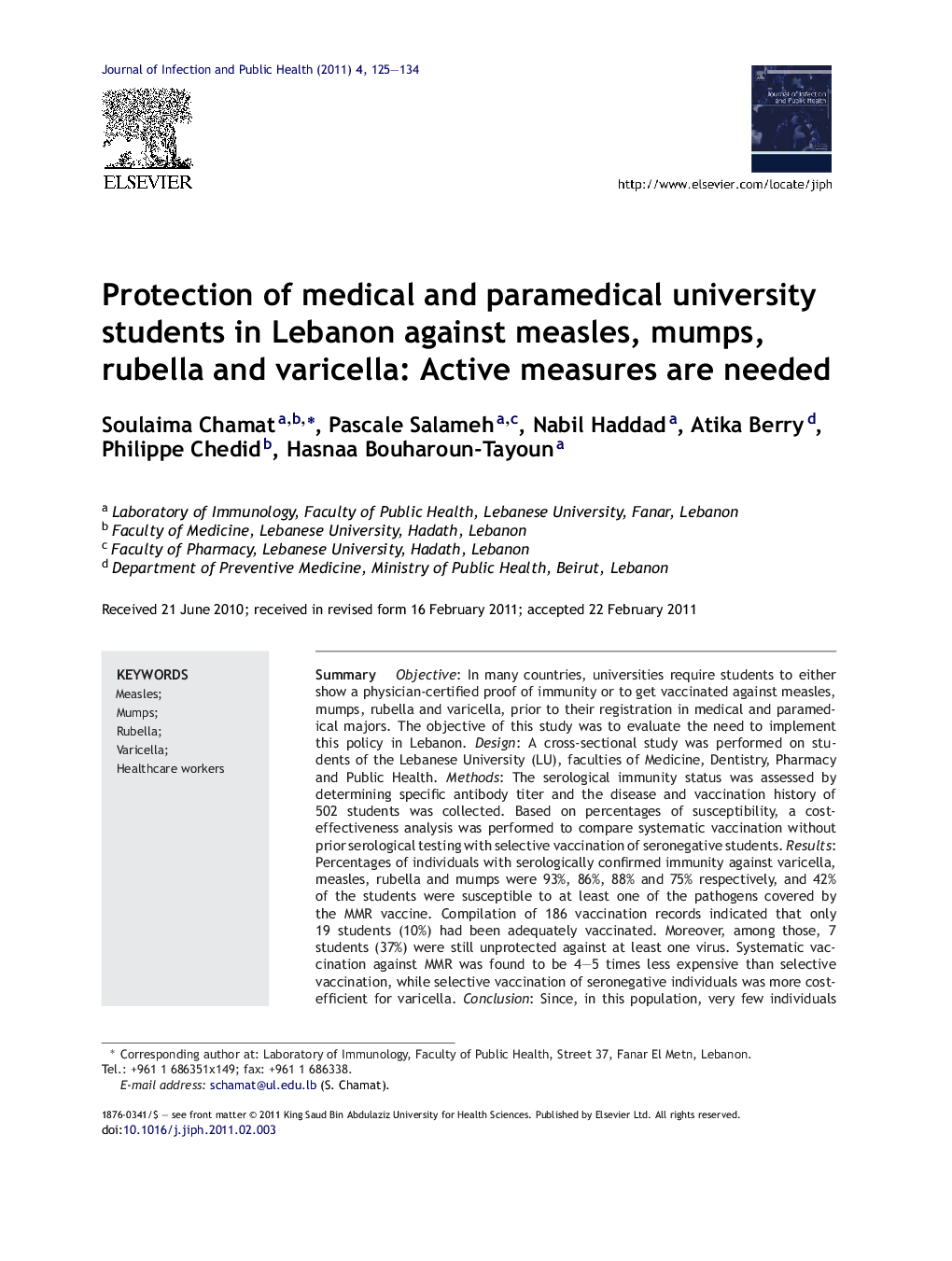| Article ID | Journal | Published Year | Pages | File Type |
|---|---|---|---|---|
| 3406120 | Journal of Infection and Public Health | 2011 | 10 Pages |
SummaryObjective: In many countries, universities require students to either show a physician-certified proof of immunity or to get vaccinated against measles, mumps, rubella and varicella, prior to their registration in medical and paramedical majors. The objective of this study was to evaluate the need to implement this policy in Lebanon. Design: A cross-sectional study was performed on students of the Lebanese University (LU), faculties of Medicine, Dentistry, Pharmacy and Public Health. Methods: The serological immunity status was assessed by determining specific antibody titer and the disease and vaccination history of 502 students was collected. Based on percentages of susceptibility, a cost-effectiveness analysis was performed to compare systematic vaccination without prior serological testing with selective vaccination of seronegative students. Results: Percentages of individuals with serologically confirmed immunity against varicella, measles, rubella and mumps were 93%, 86%, 88% and 75% respectively, and 42% of the students were susceptible to at least one of the pathogens covered by the MMR vaccine. Compilation of 186 vaccination records indicated that only 19 students (10%) had been adequately vaccinated. Moreover, among those, 7 students (37%) were still unprotected against at least one virus. Systematic vaccination against MMR was found to be 4–5 times less expensive than selective vaccination, while selective vaccination of seronegative individuals was more cost-efficient for varicella. Conclusion: Since, in this population, very few individuals were able to present a proof of adequate vaccination, it is recommended to systematically vaccinate healthcare students in Lebanon against MMR. For varicella, selective vaccination after serological testing should be performed.
